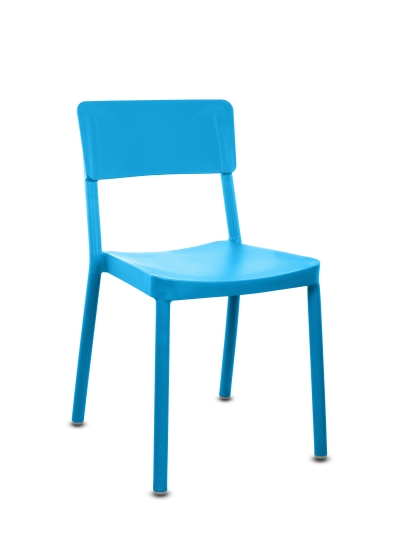Work from home tips - we have collected the most important ones for you. Don't just start it; first prepare for working from home!
More...
Working from home may appear to be a straightforward task. This is especially true if you've never worked from home before. The possible issues do not even arise until you begin. It is preferable to prepare ahead of time, analyze probable problems, and find a solution. That's what I'd like to help you with. I hope you find these work from home tips helpful!
Let's get started!
1. Set up your work environment at home!
In most offices, the working environment is ergonomic, with desks and seats that are just ideal for working comfortably. This is not often the case at home, where you might first purchase a sofa rather than an office swivel chair. Create the right environment at home! Have a comfy chair, a suitable desk, and as many monitors as you require to work comfortably. You should get a display, keyboard, and mouse if you use a laptop. I don't believe you can work on a touchpad.
Having a good internet connection is critical because if you have slow access, you'll go insane.
Make sure you have adequate natural light at your desk!
Let's see what comes next from work from home tips!

2. Create a schedule!
Obviously, the type of schedule you work is determined by your employer and team. However, if you have the choice of working on your own schedule, consider carefully what would be best for you.
For me, it's great if I can work for a few hours after putting my kids to bed at least 1-2 times per week. No one disturbs me then, and I can write even longer blog posts. In exchange, I swim with one of my children on Wednesday mornings. Is this affecting my career or personal life? I don't think so.
3. Take breaks, don't turn into a zombie!
When working from home, it's important to take breaks for a number of reasons. First, taking breaks can help prevent burnout and keep you working efficiently. Working for long periods without breaks can lead to fatigue and reduced efficiency. Taking regular breaks allows time to recharge and refocus, which can improve your concentration and performance. Not to mention your health, including your circulation!
OK, but how can I take breaks in my home office? Like this:
4. Define what counts as successful work!
I believe the question "when do I do my job well" is crucial. Ask your manager to define it precisely, or talk it through together! Good for him, good for you, it will be clear for everyone. And it will not only be clear to you, but it will also bring you joy when you reach the goals you set and you can say "I am doing my job well". Of course, for many people, this internal confirmation is not enough and they want to hear it from others. If this is the case for you, ask your manager for some feedback!

5. Make a to-do list!
Starting your day by writing down what you want to do on a piece of paper might work miracles. What do you gain?
6. Work from home as much as is ideal for you!
You'll know your self-discipline if you know yourself well enough. Some people find it difficult to work alone at home because they are constantly sidetracked by something else; unclean dishes, an overgrown lawn, Facebook, or whatever. So you can't work from home. In this case, if you know yourself, I suggest that you should choose office work before your deteriorating or poor performance causes problems.
It's also worth working in the office if the conditions at home are not satisfactory. I know many people who work 4-5 days a week in the office, simply because all the conditions are ideal there and they can really concentrate on their work.
7. Don't go overboard!
It's critical not to overdo it. All of this is said as a company director because it is also crucial to me that my employees do not burn out. This is something I say not only as a friend to my friends but also as a manager to my colleagues.
A very smart friend of mine once said to me, "Balázs, you are a talented man. And your talent is the intensity with which you do things." Needless to say, it was very good for me. But that kind of intensity can sometimes lead to overwork. When you feel like you don't want to go to bed yet because you're going to do this and that, I would call that interest or task commitment. If this happens often, I would be suspicious. But if it becomes a daily occurrence, then I think it's a straight path to burnout. You'll collapse because you'll be so exhausted. I'm not sure it's worthwhile. On the contrary, I'd advise you to be careful not to overwork all the time.
Hardworking workers at a home office can easily go that route. They work, work, and soon find themselves working more than they would if they were in the office. There is nothing wrong with overworking if you enjoy what you do. But definitely try to look after yourself!
8. Do not abandon the community!
Unfortunately, I've seen folks get so isolated from the work community that they leave and go to work somewhere else after a while. This would never have happened if they had been an active member of the team. However, isolation can have such a strong impact on work connections that some people become permanently lonely. At least in terms of interpersonal connections at work.
Another challenge is integrating new colleagues. It is quite tough to integrate into a virtual community. Of course, some people have no need to do so, which is OK. But if I think about having to work like that, I would not be happy. Listen to yourself, listen to how much you need a community at work. If you really do, then get in more and spend more time with your colleagues in the office!
This aspect is often not worth talking about in IT projects. On the one hand, the remote developer is usually a senior professional who has come to complete the project task, and on the other hand, the project has a deadline and the remote developer is likely to work on another project elsewhere when the project has been completed.

For more useful work from home tips, check out these:
